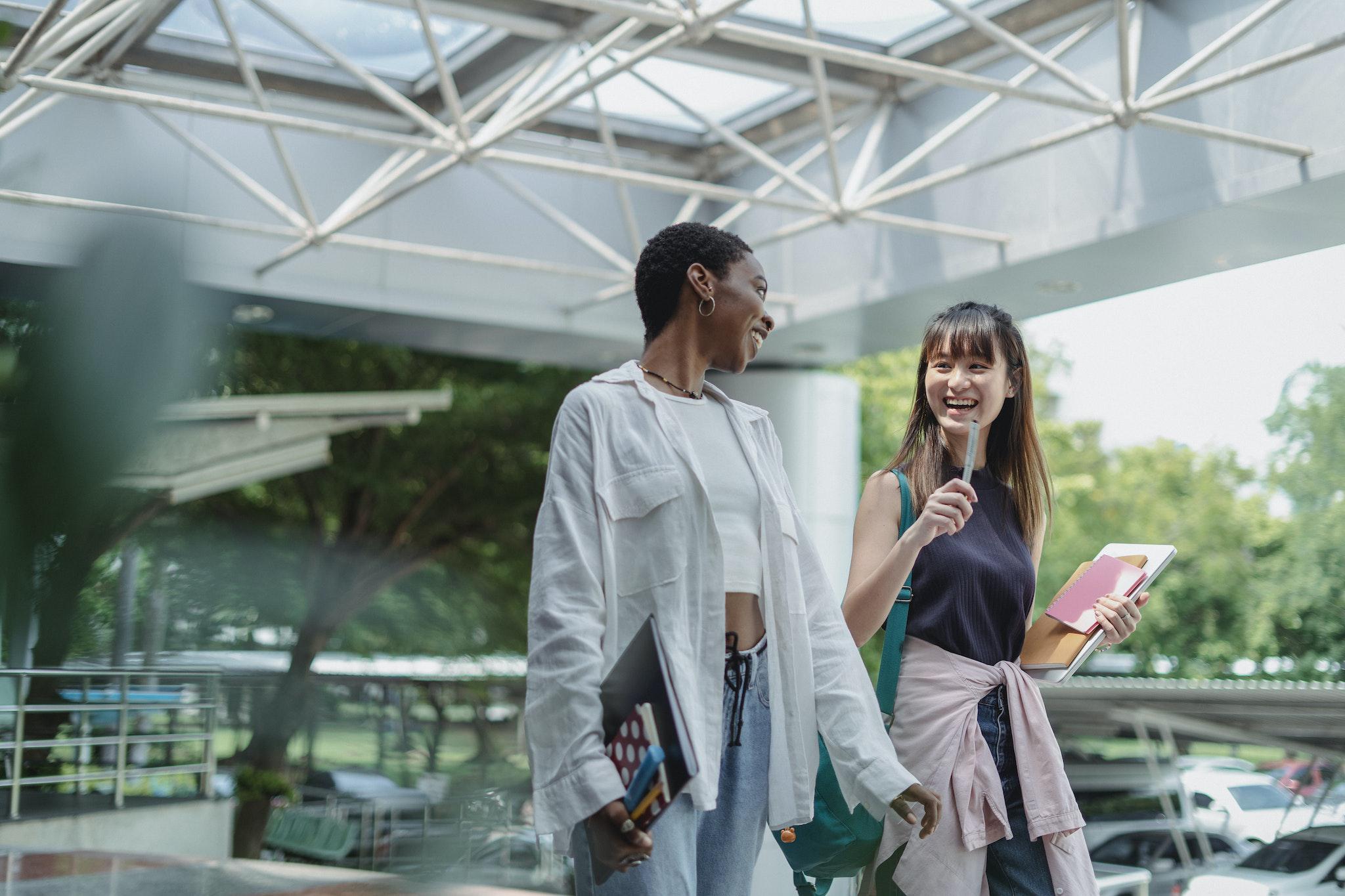The Most Common Challenges And Opportunities For College Students In The Post-Pandemic World
We all know that the Covid-19 pandemic brought some serious challenges to people all over the world. And we all stayed strong and supported each other during those tough times! Ever since its emergence in late 2019, this pandemic has caused major upheaval and completely transformed our daily routines, work lives, and educational pursuits. As you all know, the pandemic greatly impacted college students.
It was a tough time for students, but y'all stayed strong and pushed through! College students faced challenges during that time of online learning, social distancing, and campus closures. It was definitely a struggle, but we were all in that together! Amidst the pandemic, college students were presented with fresh opportunities to adjust, acquire knowledge, and flourish. Today's blog is all about the challenges and opportunities you, as a college student, face in the post-pandemic world.
Challenges
For college students, the post-Covid19 epidemic environment has created several difficulties. The transition to online learning has made it harder to stay motivated and involved, and issues with mental health, including stress, anxiety, and social isolation, are also frequent. Financial difficulties brought on by job loss or reduced hours at work, the absence of a campus community, and health and safety worries about getting the virus have all contributed to increased stress.
Shadow banes of online learning
For college students, the change to online learning has posed several difficulties. While flexibility and convenience are two advantages of online learning, it also makes it harder to stay motivated and interested. Students need help staying organized, managing their time, and exercising self-control. A lack of hands-on learning opportunities like internships or laboratory work may hamper students' ability to apply what they have learned in practical contexts.
The not-so-talked mental issues
College students' mental health has suffered significantly due to the epidemic. Several causes, including social isolation, future uncertainty, and academic stress, have caused increased levels of stress, anxiety, and depression. In addition, students may be struggling with pandemic-related personal or family concerns, such as disease or financial struggle, which worsens their mental health problems.
Struggling for the last penny
Many college students are now struggling financially as a result of the epidemic. Students now find paying for tuition, housing, and other costs more challenging due to job loss or reduced working hours. Students' financial constraints have also increased due to unanticipated costs associated with distance learning, such as the price of a laptop or high-speed internet. For some students, the epidemic has also made it more difficult for them to get internships or jobs that may have assisted them in paying for college.
The loss of 101 college experience
Student's ability to participate in extracurricular activities, network with new people, and form communities have been constrained by social distance rules and the closing of campus amenities. Students may find it more difficult to build relationships and feel a sense of belonging when there isn't much campus life, which may harm their mental health and overall college experience.
The worry about the uncertain future
For college students, the epidemic has raised various health and safety issues. Anxiety and stress levels have increased due to worries about catching the virus, uncertainty about the efficiency of safety precautions, and the infection's long-term effects. Due to the viral threat, students have found it more difficult to concentrate on their schoolwork and make plans for the future.
Opportunities
While the epidemic has presented college students with many difficulties, it has also opened fresh chances for development and education. Thanks to the transition to online instruction, students have gained new digital literacy abilities and the capacity to study in various ways. The epidemic has also sparked creativity and innovation, as both teachers and students have discovered fresh methods to interact with one another and solve challenging issues.
Juggling the balls of college and life effectively
Students now have more freedom since colleges and universities had to change how they delivered education due to the epidemic. Online education has increased flexibility for people who work or have other responsibilities by enabling students to learn quickly and independently. The epidemic has also inspired educators to use more adaptable teaching strategies, such as asynchronous learning, which can aid students in better time management and responsibility balancing.
Technology adoption like never before
The epidemic has sped up the adoption of new educational technology, allowing students to learn new digital literacy skills. Today's students are more accustomed to using various digital tools and platforms, including video conferencing software and online learning management systems. The epidemic has also sparked creativity in creating new instructional technology, such as virtual and augmented reality, that can improve the learning process.
The infusion of accountability into daily learning
The epidemic has forced students to take more ownership of their education. Students must be more self-directed in their study approach because they have less direct contact with their lecturers. Students now have the chance to learn crucial abilities, including time management, organization, and self-discipline. Additionally, self-directed learning can enhance students' capacity for independent learning and help them feel more ownership over their education.
Breaking the boundaries with global learning
The epidemic has further focused on the connectivity of the world and the significance of social justice and global health. Because of this, many schools and institutions emphasize global viewpoints more in their curricula. As a result, students may have a more comprehensive view of the globe and become better prepared to be global citizens.
Life skills that no class could teach
Students have had to be adaptive and resilient in the face of uncertainty and change due to the epidemic. The pandemic's worry and anxiety have forced students to adjust to new learning contexts, overcome unanticipated obstacles, and manage their emotions. Students can learn valuable life skills from these encounters, like resilience, adaptation, and problem-solving, that they can use even after college graduation. Additionally, as they work together to get through this difficult period, the epidemic has allowed kids to grow in their capacity for empathy and compassion for others.
Finding support and comfort in the post-pandemic world
The COVID-19 pandemic has been a rollercoaster ride for college students, but it's also brought about some amazing opportunities in this post-pandemic world. The challenges have been real, but let's remember the amazing opportunities for growth, learning, and innovation that come with them. As we all adjust to this new normal, it's crucial to remember that there are tons of resources out there to help us. From mental health services to financial aid, you've got options! Additionally, finding a comfortable and convenient living space can greatly impact a student's experience.
Students are absolutely obsessed with YourSpace! We are the ultimate provider of co living space in Delhi. You simply cannot go wrong with us! We provide the perfect place for students who want to live in a modern and convenient single room for girls in Laxmi Nagar or share PGs in Delhi while pursuing their academic and personal goals! With fully furnished apartments and a vibrant community, YourSpace is the ultimate choice for a comfortable and stylish living experience. Make housing a breeze in the post-pandemic world with YourSpace - the ultimate choice for an unparalleled living experience.




0 Comments Add a Comment?